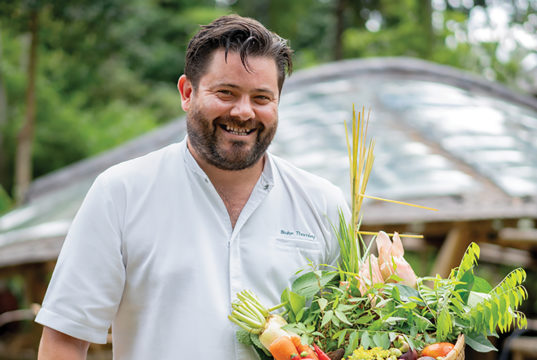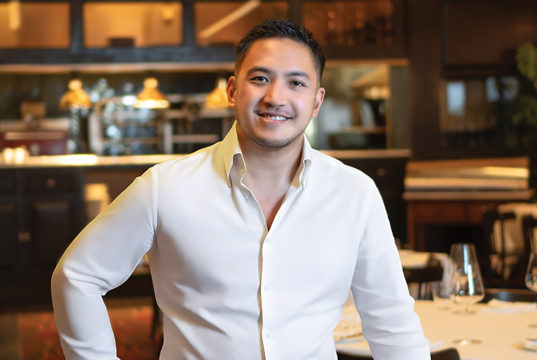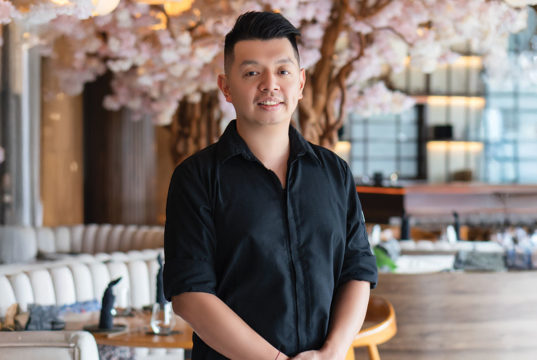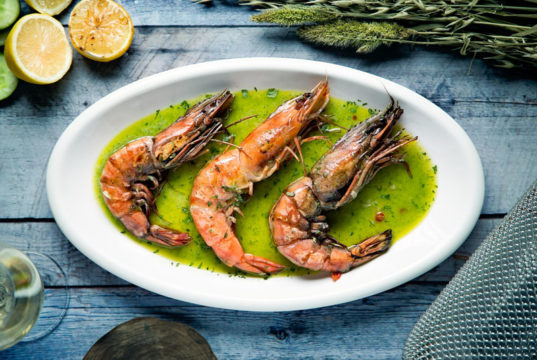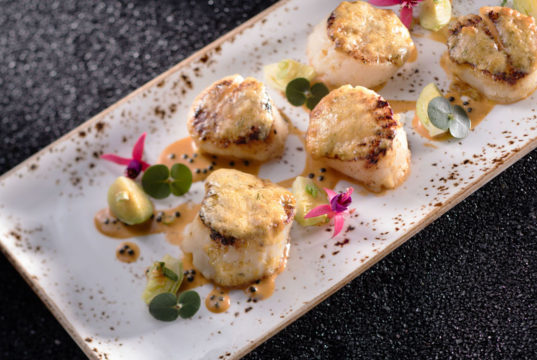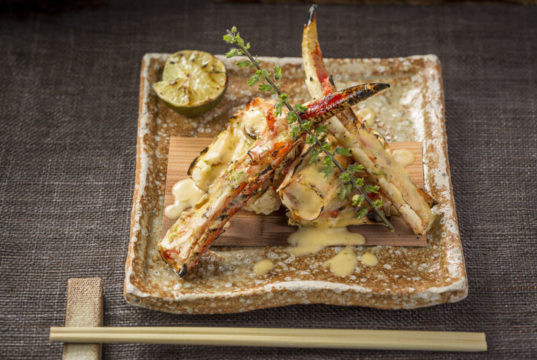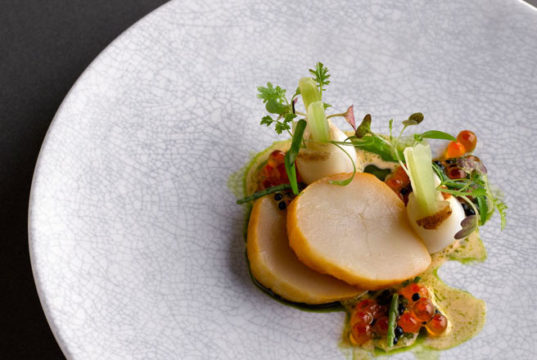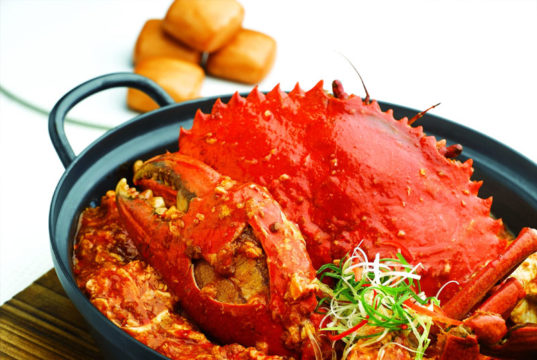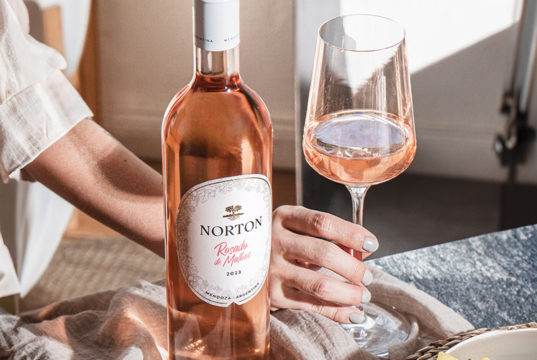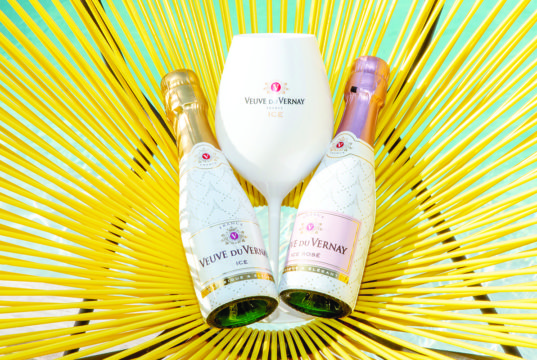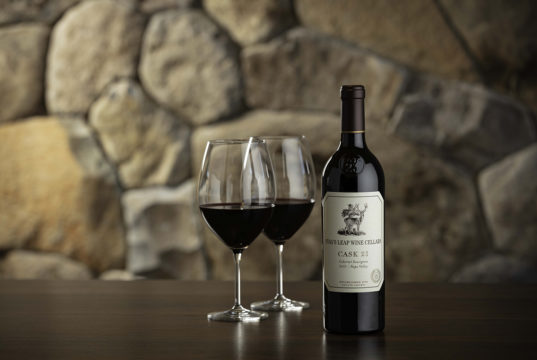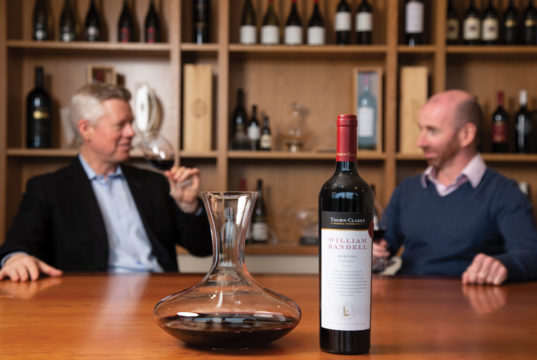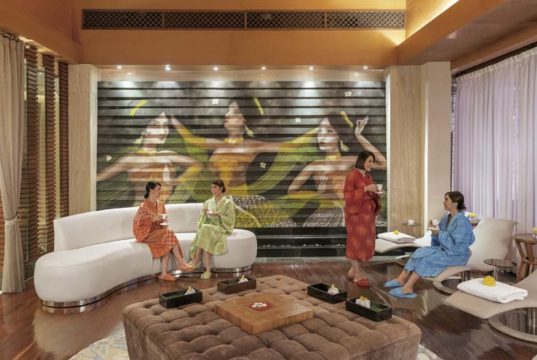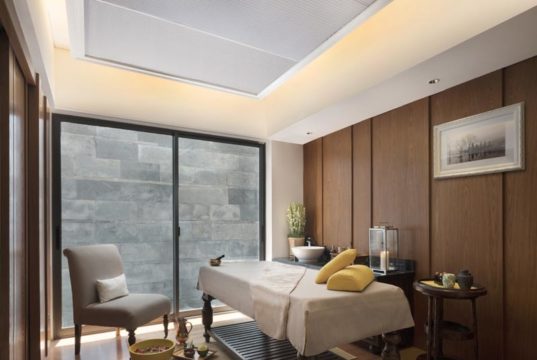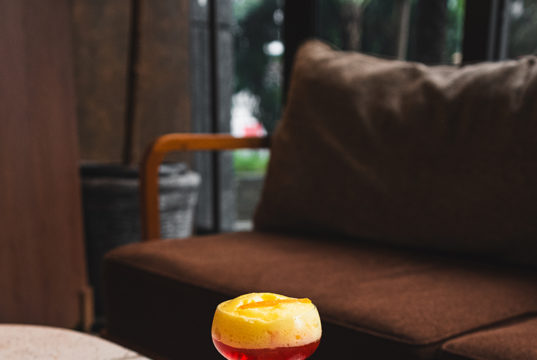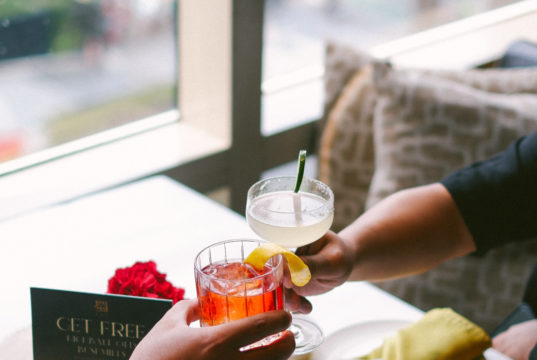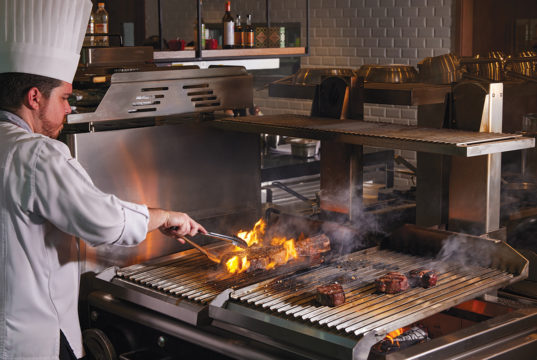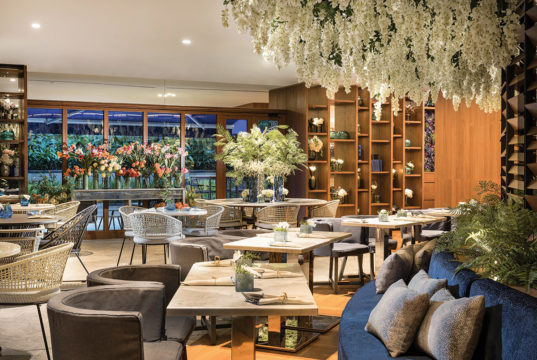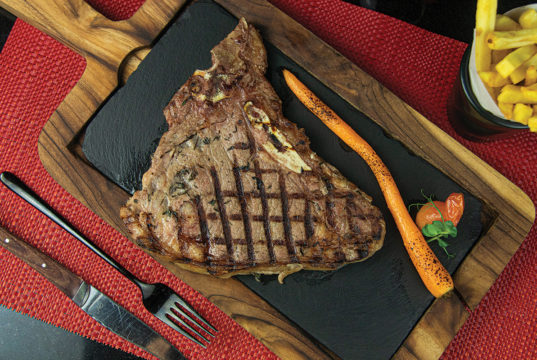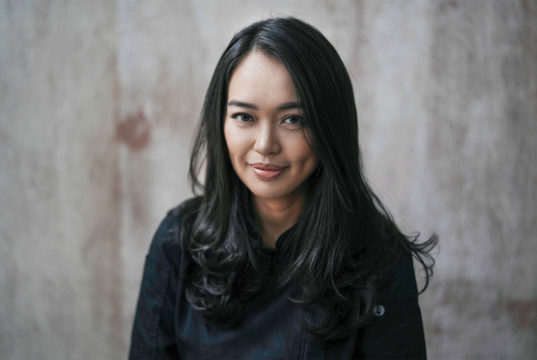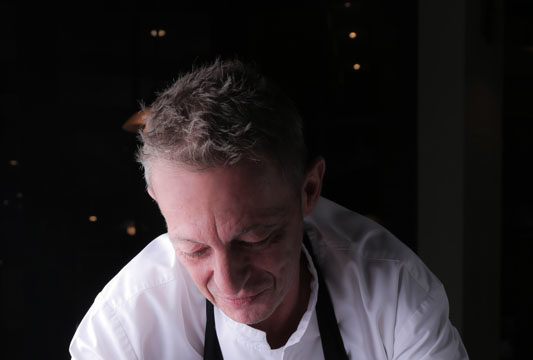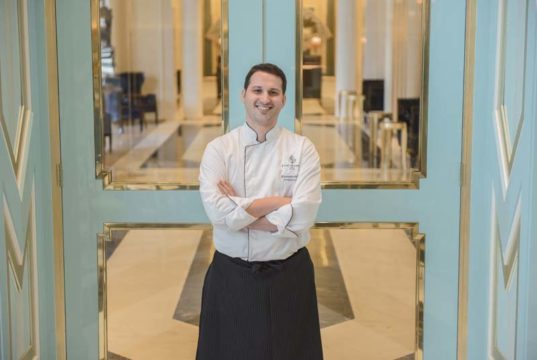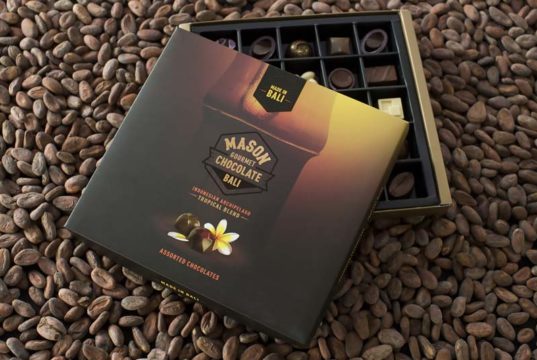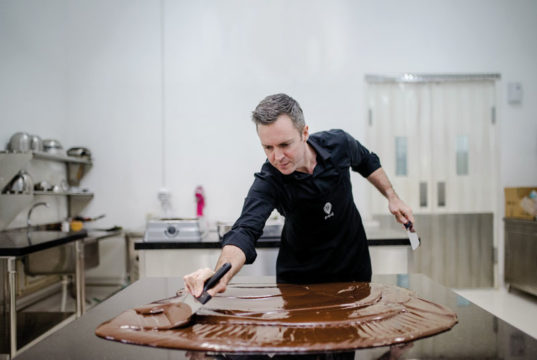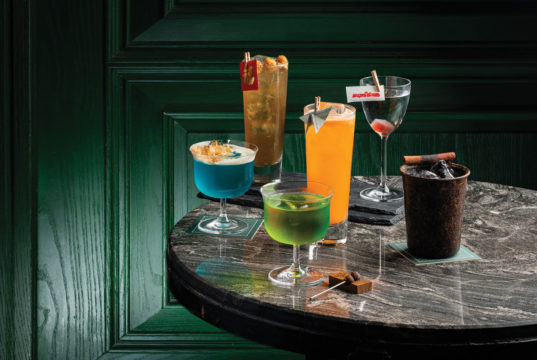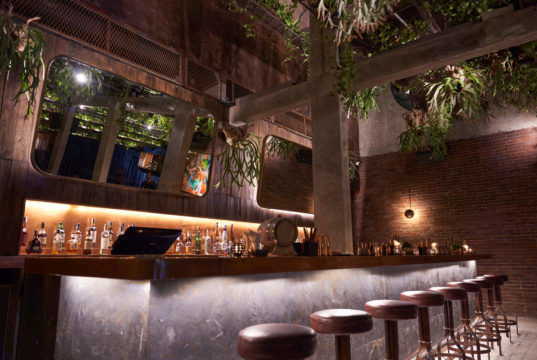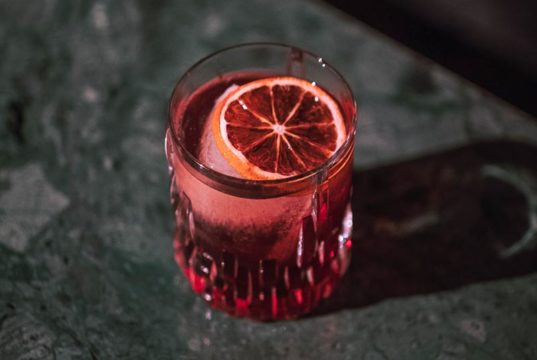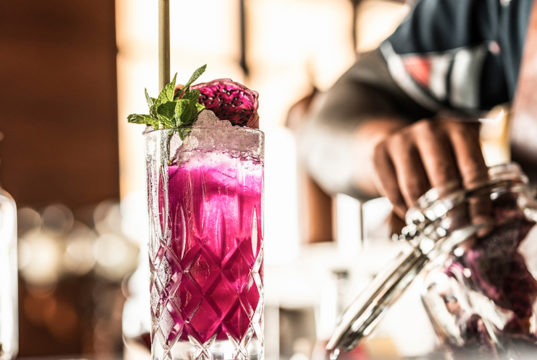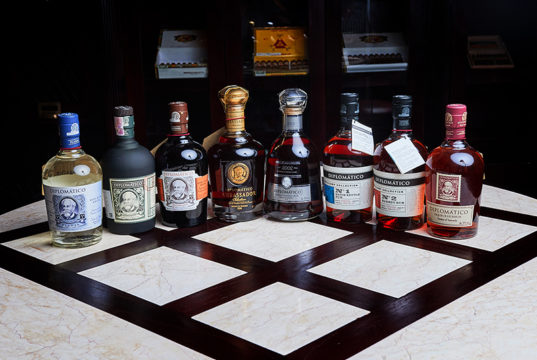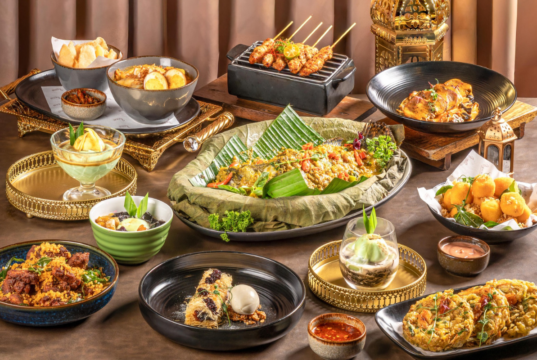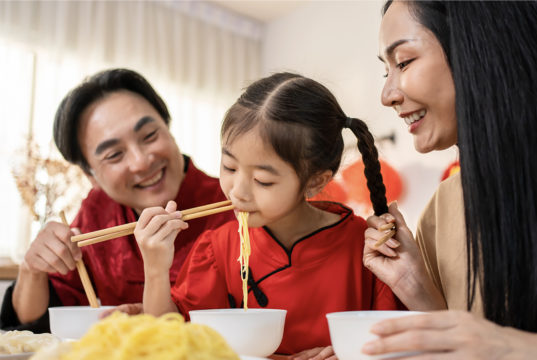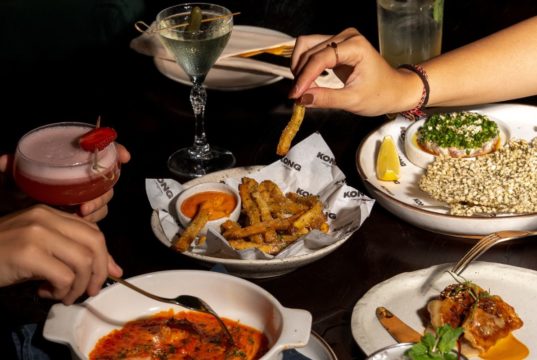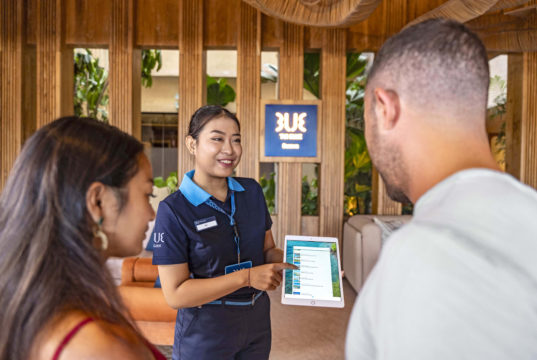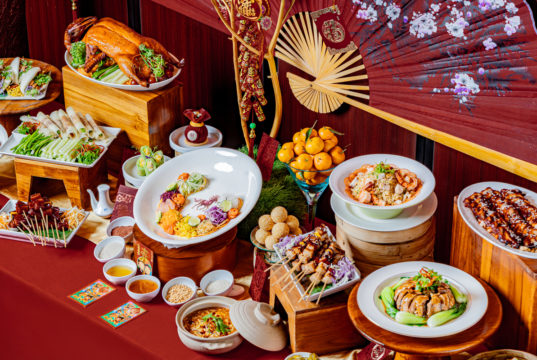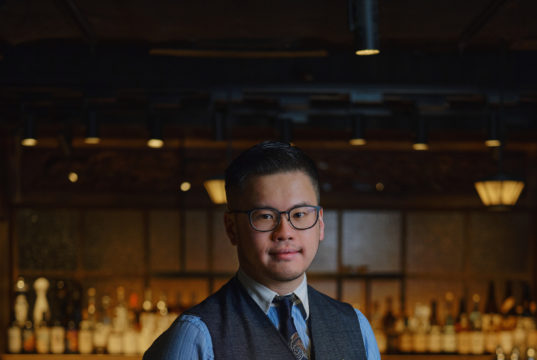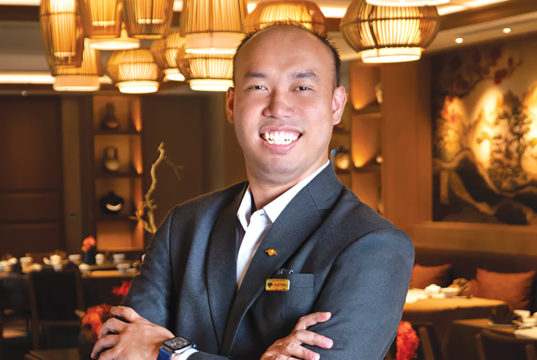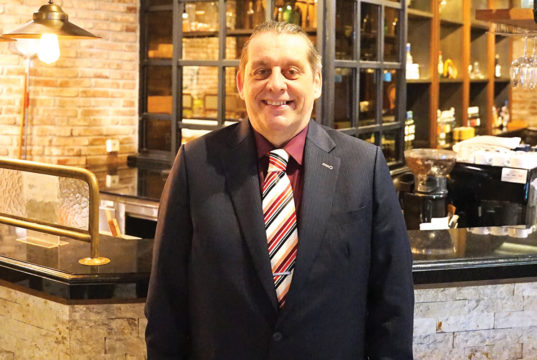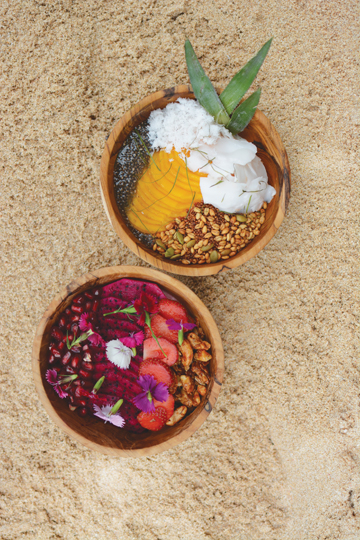Restaurateur/Chef
Australian James Viles went from polishing cutlery and delivering room service when he was 12, to focusing on cooking at 14 and opening his own successful restaurant, Biota, in his home country when he was 30. Along with the Biota team, James is now collaborating with The Ungasan Clifftop Resort and Sundays Beach Club in Bali to bring the establishments to a whole new level of culinary excellence.
—
E: Can you tell me more about Biota?
James: It’s a restaurant an hour out of Sydney, up in the mountains. We have five kitchen gardens, where we gather a lot of wild ingredients. We don’t really have a lot of suppliers, and we don’t use any imported food whatsoever. We have a zero imported food policy. So we’re using only Australian ingredients, grown in Australia, which supports the local farmers and growers, which is really important for us. We also have a big thing about waste. We try to use every single part of every single animal or plant that we can. We have also started putting that into practice here in Bali. Sustainability and food ethics are a big part of what Biota is.
E: Can you tell us more about your collaboration with The Ungasan Clifftop Resort?
J: It’s a collaboration between Biota and The Ungasan. Biota is here for the next two years, and we have a chef from Biota, Ryan, who works here full time. We’re basically taking over the entire F&B operations of the whole hotel and Sundays Beach Club, and bringing them to the next phase – which focuses a lot on ingredients from Bali, and to really stop using imported products. Other than the beef, everything is locally sourced and fresh. The seafood? Nothing comes frozen anymore. We might have more limited options for seafood, but at least it’s fresh from Bali and it supports local fishermen out there on their boats. This is important, food could change the world, if all the cooks and all the chefs in the world would just focus on where it’s coming from and how, and what it does to the community when they buy it from local farmers or producers. If we all did it, then the whole world could be a better place. The fisherman could afford to buy better boats to get better catches of fish, or maybe put their kids through school.
E: How did ethical food values become so important for you?
J: I lived in the Middle East for six years where I had to import all the ingredients. It really caught my attention. We’re so lucky back home in Australia because we can get whatever ingredient we want from within 15 kilometres up the road. And it’s such a vast country that ingredients can be farmed all over it in different climates at different times of the year. For me it’s really nice to say, okay, let’s start a restaurant where we just focus on ingredients from our place. Living that life for six years in the Middle East gave me the ideas and the passion to do something a bit more honest.
E: How would you describe your cooking style?
J: The menu changes every week at Biota because we use a lot of wild ingredients. I would say our cooking technique is free form and heavily reliant on Mother Nature. One of our chefs is also our forager, or gatherer. He goes out and does 500km a week in his car gathering wild ingredients from the forest or from the beach. And we do that here now too in Bali.
E: Was there a time when you didn’t find anything?
J: Never. There’s always something that goes into the menu. Here I found so many things compared to home. Raw cacao – we don’t have as much back home, so that’s amazing. Green peppercorn just growing wild, and I use that for Sundays’ menu.
E: What can we look forward to with The Ungasan Clifftop Resort and Sundays Beach Club dining scene?
J: Something tasty, calculated and consistent, in addition to this really beautiful area. The beach club down there has an amazing menu with ingredients sourced from right here.
E: Do you have any advice for those who want to break into the industry as a chef?
J: Don’t do it! [laughs] They have to ask themselves why they want to cook, for what reasons and if they want to make a difference, because it’s not just about cooking food for people to eat. There are so many different reasons for cooking, and what food can do to a society. Food has caused conflicts, happiness, a lot of different things over a lot of different cultures over many, many years, so they have to have a really good heart to think about why they want to cook.




